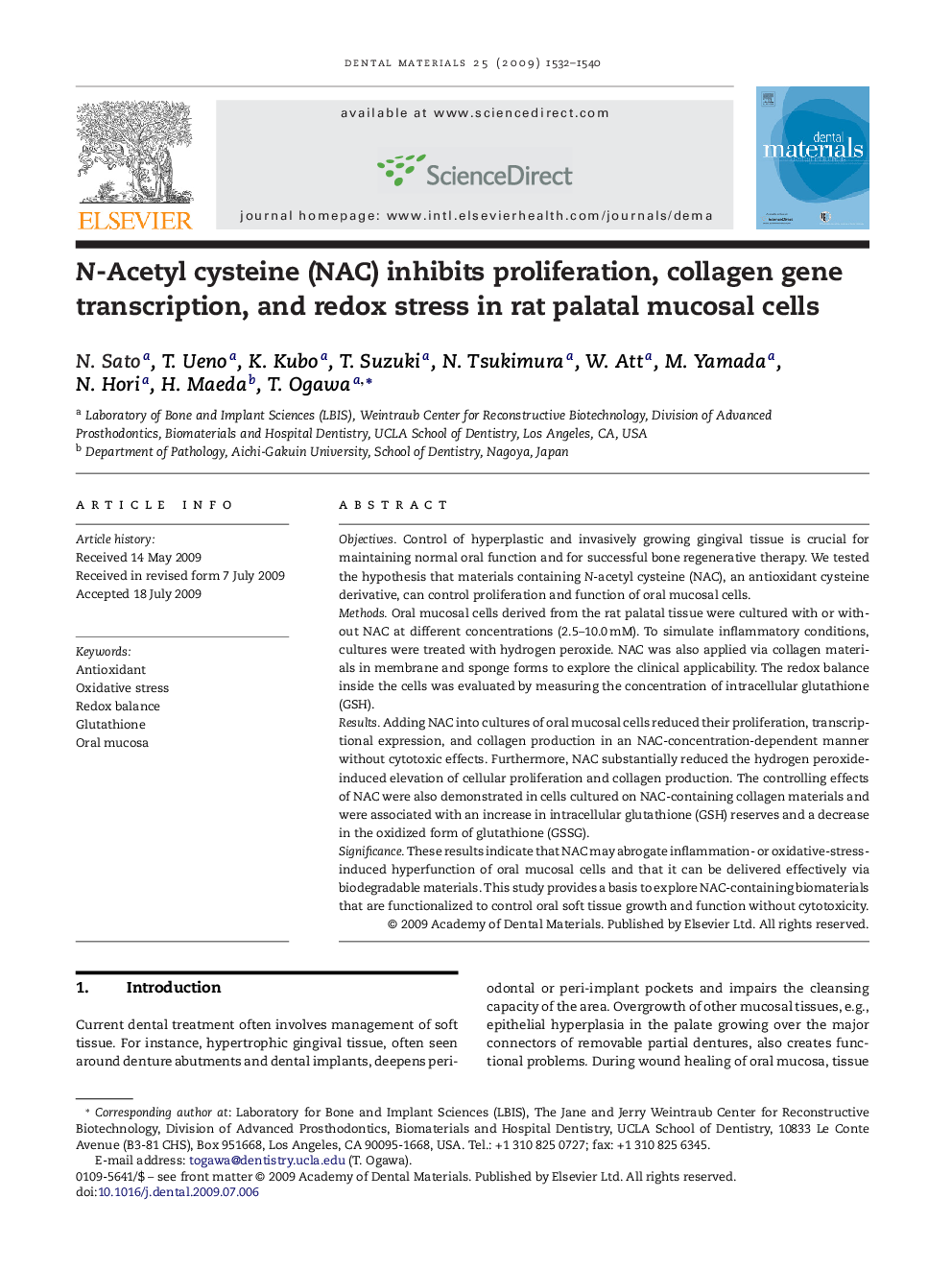| Article ID | Journal | Published Year | Pages | File Type |
|---|---|---|---|---|
| 1421963 | Dental Materials | 2009 | 9 Pages |
ObjectivesControl of hyperplastic and invasively growing gingival tissue is crucial for maintaining normal oral function and for successful bone regenerative therapy. We tested the hypothesis that materials containing N-acetyl cysteine (NAC), an antioxidant cysteine derivative, can control proliferation and function of oral mucosal cells.MethodsOral mucosal cells derived from the rat palatal tissue were cultured with or without NAC at different concentrations (2.5–10.0 mM). To simulate inflammatory conditions, cultures were treated with hydrogen peroxide. NAC was also applied via collagen materials in membrane and sponge forms to explore the clinical applicability. The redox balance inside the cells was evaluated by measuring the concentration of intracellular glutathione (GSH).ResultsAdding NAC into cultures of oral mucosal cells reduced their proliferation, transcriptional expression, and collagen production in an NAC-concentration-dependent manner without cytotoxic effects. Furthermore, NAC substantially reduced the hydrogen peroxide-induced elevation of cellular proliferation and collagen production. The controlling effects of NAC were also demonstrated in cells cultured on NAC-containing collagen materials and were associated with an increase in intracellular glutathione (GSH) reserves and a decrease in the oxidized form of glutathione (GSSG).SignificanceThese results indicate that NAC may abrogate inflammation- or oxidative-stress-induced hyperfunction of oral mucosal cells and that it can be delivered effectively via biodegradable materials. This study provides a basis to explore NAC-containing biomaterials that are functionalized to control oral soft tissue growth and function without cytotoxicity.
